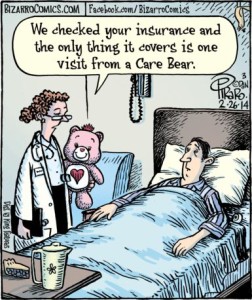Insurance, no insurance, money, lack of money, and other rants
I was filling out Ashlynn’s Small Steps in Speech Grant Application tonight sparing myself plenty of time since it is due tomorrow! It’s always surreal to play the part of parent like this: stressing out, frantically collecting documents, invoices, cost verifications, reports, insurance denials and more only to turn around and provide therapy for parents who are doing the same thing.
It’s always an awkward position to be a sounding board for parents stressed about payments and cost of therapy, but to also be the source of their financial woes as well.
Sometimes since I’m both a mom and SLP, the boundaries become a bit blurry for me. I relate to them so personally, but in reality I need to be there for them professionally.
Tonight I am full mode of parent. Why insurance doesn’t cover a neurological disorder like apraxia is freaking beyond me. Don’t get me wrong, some insurance companies do, but most do not; and we are the lucky people to fall in that DO NOT category.
When Ashlynn was dx I was on maternity leave and was living partly off savings I had accrued while working full time. I happen to be a good saver. However, even the best saver in the world can’t prepare someone for paying $65 per 30 minutes every week….and that’s not even what research says a child should receive. Yes, RESEARCH saying children with apraxia need 3-5 times per week of intense intervention. We all quickly learn insurance companies don’t give a $hit about research. Lucky for me I was an SLP so I could feel confident that I could continue the sessions throughout the week, but even still, that kind of money isn’t just chump change.
Add on global apraxia challenges as is the case with Ashlynn, and we quickly find private OT and swim lessons adding up as well. I seriously can hear “ching ching, ka-ching” in my head right now.
Insert CASANA. Two people on their staff of three dealt with the same issue back when their children were young. They fought insurance companies and lost and charged up credit cards with therapy bills. Thanks to their struggles and their desire to help those who came after, families like mine at least have the option to apply for grant money funded by CASANA when insurance companies indifferently give us the finger.
I’m in such a better place now, emotionally than in the past. Despite gains though, incredible gains really, Ashlynn is still so damn far behind; and when I have to fill out an application begging someone to help my child because insurance doesn’t consider it a congenital malformation or whatever the hell insurance companies have decided they will only cover….it sucks. It sucks to put in writing how your child, who is your hero, who wakes up everyday with a smile and works so hard in therapy, still struggles to do a basic human right: communicate. This was my plea tonight, and I thought I would share.
Ashlynn was dx with CAS at the age of 2 years 11 months. Since that time the dx made a huge difference, as it afforded her the appropriate treatment approach. For as many gains as she has made with speech articulation, her scores do not show it. Recent testing in the Spring done by the school for her re-evaluation, revealed scores well below the average range in all areas, except for that on a single word articulation test, which came in barely within the average range. You cannot imagine how heartbreaking it was to realize how hard she works and how much improvement she has made, only to be faced with scores that are still significantly below average for receptive language, expressive language, word finding, motor planning, and pragmatic skills.
These deficits are impacting her reading in the way of phonemic awareness, letter name and letter sound accuracy, among others. These deficits impact her socially because she can’t keep up with the complex imaginative language girls her age now have. These deficits impact her writing and classroom participation in group discussions.
At home, she is still unable to accurately relate personal narratives due to her crippling word finding and expressive language deficits, despite seeing the wheels turning in her head desperate to come out.Ashlynn has to fight everyday. She has to fight to speak. I gain my strength in her and know if she is still willing to fight, then I have to fight for her and help her get the services she needs. I know she can overcome this. I KNOW it, but she needs so much repetition and help. She will rise to the challenge though, and that is why we need this grant. To continue the work Ms. Deb puts in along with Ashlynn’s team of other therapists, and of course, Ashlynn herself. Thank you for your time and consideration.
To learn more about the Small Steps in Speech Grant visit their website: http://www.smallstepsinspeech.org/
